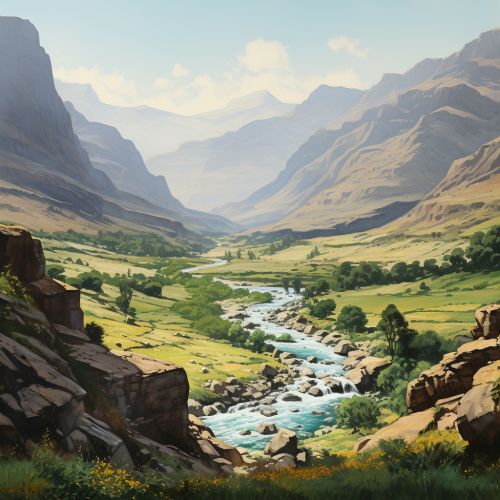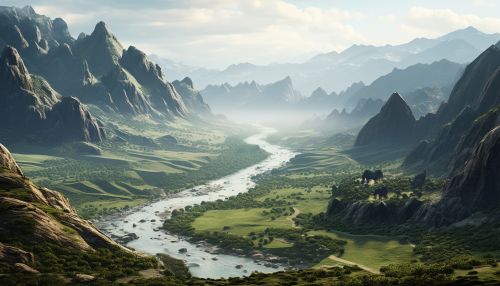Kurdistan
Geography
Kurdistan is a region spanning several countries in the Middle East, including parts of eastern Turkey, northern Syria, northern Iraq, and western Iran. It is characterized by rugged mountainous terrain, with the Zagros and Taurus ranges forming natural boundaries. The region is rich in water resources, with numerous rivers including the Tigris, Euphrates, and Great Zab. These rivers have played a crucial role in the region's history and development.


History
The history of Kurdistan is complex and intertwined with the histories of the surrounding regions and empires. The region was first mentioned in Sumerian records dating back to the 3rd millennium BC, where it was referred to as "Karda". Over the centuries, Kurdistan has been part of various empires, including the Median, Achaemenid, Roman, and Ottoman empires.
In the 20th century, the Kurdish people made several attempts to establish an independent Kurdistan, but these were largely unsuccessful due to opposition from neighboring countries and international powers. Today, the Kurdistan Regional Government (KRG) in Iraq is the only officially recognized Kurdish government, but there are significant Kurdish populations and political movements in Turkey, Syria, and Iran.
Demographics
Kurdistan is home to a diverse population, with Kurds making up the majority. The Kurdish people are an ethnic group with their own unique language, culture, and history. The region is also home to various other ethnic groups, including Arabs, Assyrians, Armenians, and Turkmen, among others.
The predominant religion in Kurdistan is Sunni Islam, but there are also significant communities of Shia Muslims, Christians, Yezidis, and other religious groups. The region is known for its religious diversity and tolerance, with many different religious communities living side by side.
Economy
The economy of Kurdistan is diverse and includes sectors such as agriculture, industry, and services. The region is rich in natural resources, including oil and gas, which are major sources of revenue for the KRG in Iraq. Agriculture is also an important sector, with the region's fertile valleys and rivers allowing for the cultivation of a variety of crops, including wheat, barley, and fruits.
In recent years, there has been a push to diversify the economy and reduce dependence on oil and gas. This has led to growth in sectors such as tourism, construction, and retail.
Culture
Kurdistan has a rich and diverse cultural heritage, with influences from various civilizations that have inhabited the region over the centuries. Kurdish culture is characterized by a strong oral tradition, with stories, songs, and poems passed down from generation to generation.
Music and dance are important aspects of Kurdish culture, with traditional dances such as the Halay and music styles such as Dengbêj being popular. The region is also known for its traditional crafts, including carpet weaving and pottery.
Kurdish cuisine is diverse and heavily influenced by the region's agricultural products. Popular dishes include Dolma, Biryani, and Kebab, and tea is a staple drink.
Politics
The politics of Kurdistan are complex and vary across the different countries where the region is located. In Iraq, the KRG is an autonomous region with its own government and parliament. The KRG has its own security forces, known as the Peshmerga, and has significant autonomy in economic and domestic affairs.
In Turkey, Syria, and Iran, the situation is different, with Kurdish political movements often facing repression. Despite this, there are active Kurdish political parties and organizations in these countries, advocating for greater rights and autonomy for the Kurdish people.
